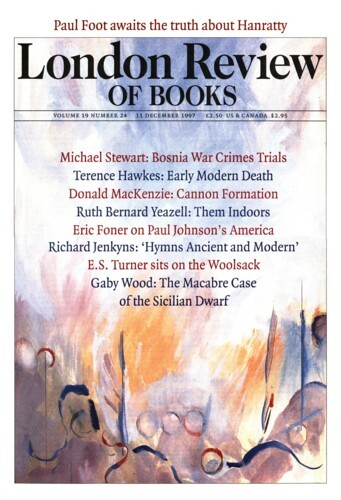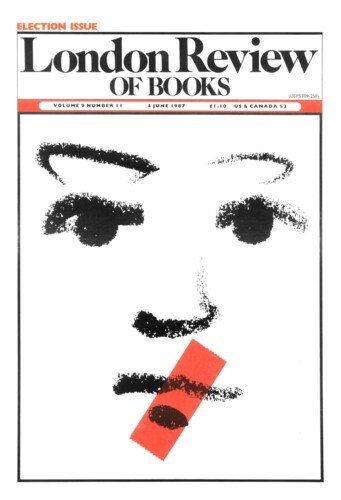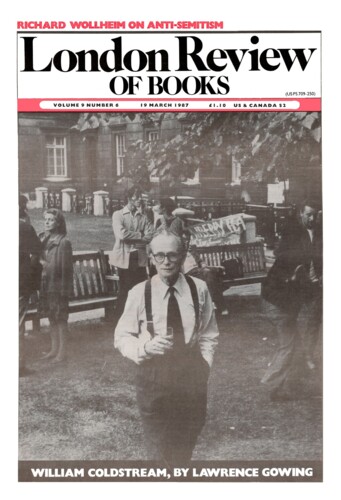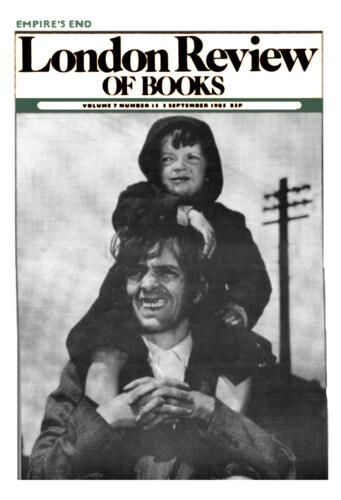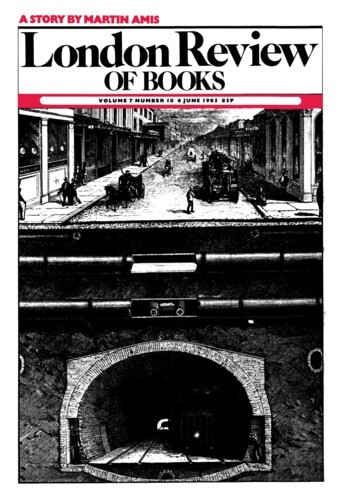Atone and Move Forward
Michael Stewart, 11 December 1997
In a speech at the London School of Economics in June this year, Antonio Caesese, the President of the International Criminal Tribunal for the Former Yugoslavia, spoke about the century’s greatest forgotten massacre and the role of the ‘Justice Commandos of the Armenian Genocide’ in drawing it to the world’s attention. Though provision had been made in the Treaty of Sèvres in 1920 to bring the Turkish-perpetrators to trial, the impetus soon weakened and in the place of justice came punishment by the Commandos, who sought out and murdered leaders of the Young Turks in Germany in 1921-22. The aim of the Commandos – and this was Caesese’s point – was not primarily revenge. Their most famous member, Soghomon Tehlirian, surrendered voluntarily to the police, hoping that a public trial would make the world more aware of the massacre. Tehlirian was tried, and acquitted, by a Berlin court – but even so the story of the slaughter all but disappeared from the historical record. Antonio Caesese recalled Hitler’s reported appeal to his worried colleagues when they doubted they could get away with a ‘final solution’: ‘After all, who today speaks of the annihilation of the Armenians?’’‘
